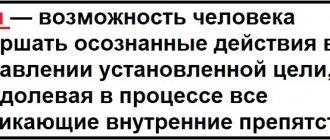The phenomenon of spirituality
The concept of spirituality involves two interpretations: secular and religious.
From the point of view of the first of them, spirituality is a person’s desire to embody in his life the highest values, such as goodness, beauty and truth, to realize himself through love for the world around him and to achieve an ideal.
From the point of view of a religious position, spirituality is understood as a deep connection between a person and God, the achievement of unity with him and the beginning of the process of “deification” of a person’s personality.
At the same time, both secular and religious positions assume that the source of spirituality is conscience, which is interpreted as a feeling of the connection between man and God (religious position) or a sense of internal harmony and justice (secular position).
Human qualities: list
Morality and ethics intersect, forming a single system of qualities. This category includes the moral block:
- love for people
- respect for others,
- devotion (loyalty),
- selfless beginning (motivation to act due to good intentions rather than potential gain),
- spirituality (combination of morality and religiosity).
And the moral block :
- call of Duty,
- responsibility,
- honor,
- conscience,
- desire for justice
- dignity.
In addition to positive moral qualities, there are also negative ones : anger, envy, deceit, etc.
If the level of morality in a society is low, over time, negative actions and qualities become acceptable and preferable for society, and are then instilled in younger generations as the current norm.
The substitution of concepts occurs very quickly and the dynamics can be tracked even using the example of children and their parents.
A positive moral quality is recognized as such at the level of entire communities. And such universal qualities guarantee that their owner will be identified as a moral and educated person.
The most highly valued in modern society are responsibility, humanity, openness, sincerity, discipline, loyalty, collectivism, tact, hard work, diligence, and cleanliness.
High moral qualities are those qualities that are in the “positive” pole in a given society/culture.
But in some cases , “high” are those qualities that are dictated not so much by the need to successfully integrate into society, but by the deep and sincere feelings of an individual. This category includes patriotism, chastity, and absolute humanism.
Morality concept
The concept of morality requires a more specific interpretation. Usually this phenomenon is considered to be part of universal human culture, which contains universal moral values, moral norms, rules of conduct, knowledge, and beliefs.
The question of what a person’s spiritual and moral guidelines are can be answered as follows: these are spiritual and moral indicators that include such values as conscience, love, goodness, a sense of duty, beauty, the desire for truth, the thirst for justice, the desire for ideal.
Soul
Each person has his own concept of values. This is neither bad nor good. This is a given. How and where do they come from? The very first source is the soul. Even small children who do not yet have social experience react completely differently to what is happening around them. These invisible strings of the soul give birth to a constant piece of music that guides us through life. Growing up, the soul gives birth to conscience. They are the most important duet, which defines our life guidelines.
The importance of spiritual and moral guidelines
We have established that a person’s spiritual and moral guidelines are his values and beliefs. These are personality attitudes that she cannot transgress. They regulate a person’s conscious activity and help him find his place in the world, being a kind of core of his consciousness.
In fact, a person’s integrity depends on how important these guidelines are in his life. For example, not every person can commit acts of theft, treason or betrayal, because not all people are allowed to do this by their conscience, or in other words, by their spiritual and moral guidelines.
And a certain part of people are usually called “people with a burned conscience”; they are capable of unseemly acts because they do not see in them the degree of evil that really exists there. These are people with lost spiritual and moral guidelines.
Inconstancy of goals and priorities
At the beginning of humanity as such, instincts were the only guide for people. This mechanism worked stably; there simply could not be other principles. Existence was reduced to the preservation and continuation of the family, protecting the hearth and obtaining food.
During the development of society, instincts and reflexes were not forgotten, but traditions were added to them. Violating the foundations of a family or an entire society was considered obscene. An individual who renounced the heritage of his ancestors was condemned or even expelled.
The life goals of modern people are inconsistent. This is due to a loss of orientation towards traditions, customs, and social principles. The person received maximum freedom of action and speech. Now there is no need to think about getting food, and procreation as a goal has lost its power.
What are spiritual and moral guidelines of a person: the golden rule of morality
A significant role in the formation of a person’s spiritual and moral guidelines is played by the rule formulated in ancient times, which is usually called the “golden rule of morality.” Its description can be found in the most ancient texts, as well as in the texts of the New Testament.
It says: “Don’t do to other people what you wouldn’t want them to do to you.”
This rule is very simple. However, if people who knew about it actually embodied it in their lives, there would be much less evil, injustice and misfortune on earth. The whole trouble is that many of us, following the sad words of one of the apostles, know where good is, but do not follow it, know where evil is, but commit atrocities.
Behavior
Behavior becomes moral when an individual ties it to the existing system of moral values and tries to bring his actions to positive guidelines.
The key element of moral behavior is action .
An act, in turn, consists of an action and can receive a positive or negative assessment from members of society.
Abstaining from any action at a time when morality requires a person to be active can also be regarded as an act.
Moral behavior is difficult to evaluate objectively, but others always pass other people’s actions through “filter factors” :
- motives (if a noble motive led a person to an unsightly result, the degree of indignation of society will decrease),
- the result of an action
- objective reality (the circumstances in which the act was committed),
- means of achieving the task (a person can use “forbidden techniques” on the way to a good goal, which will seriously darken his moral character).
Moral behavior is always an attempt to find a balance between the restrictions established by society (framework) and one's own freedom (creative choice).
Spiritual and moral education
Speaking about what a person’s spiritual and moral guidelines are, one cannot help but say about the need to organize spiritual and moral education.
Even ancient teachers thought about how to raise such a noble person. And today a lot of works have been written on this topic.
As a rule, they boil down to the fact that parents and teachers are advised to instill spiritual and moral guidelines in their children by their life example. After all, if parents tell the child to act fairly and honestly towards the people around him, but their behavior themselves are far from ideal, then the child will most likely inherit their bad example, not paying attention to their noble words.
Moral guidelines of the individual
K.B. Kemelbekov Ph.D., Associate Professor, Shymkent, Kazakhstan
South Kazakhstan State Pharmaceutical Academy
The dominants of human self-development depend not only on the psychological self-awareness of the individual. Essential guidelines are set for a person by society and cultural imperatives. By squeezing himself into a specific character, a person loses many features of his own uniqueness. After all, the process of socialization begins from the moment when an individual defines himself and his attitude towards other people. The development of one form or another of communication leads to the formation of social character, that is, stability. Morality is born at a certain stage of human society or the development of the human individual, that is, in phylogenesis and ontogenesis. It is preceded by two stages in the formation of the human “I”:
a) Cult level,
meaning the unity of a person with the world, his inseparability from the world and from other people, the unity of his worldview with others, manifested in the phenomenon “We”:
b) Level of culture,
selection of cultural forms in the context of diversity of human activity and human individuals; here natural norms of human relationships are formed, which we call morality (from the words: morality, custom): basic moral values are formed: freedom, good, evil, justice. This stage ends with the formation of civilization.
c) At this third stage of society, the values of good, evil, and freedom are transformed into the social concept of duty, socialized in a particular society and become social and legal norms. At the same time, their moral principle is eliminated, gradually dying away. If at the previous stage we could talk about humanistic ethics (from the word humanite - French - love for humanity), then at this stage we are already talking about social ethics. Its difference is that it is subordinated not to the interests of an individual, private person, but to the interests of society. In this ethics, a person acts as an object of influence on him from society, or another society (part of society or some social institution).
Social ethics is addressed, first of all, to the external side of human behavior, his etiquette image. It directly presupposes a gap between the internal and external in a person, thereby depriving him of freedom almost completely. In this regard, the internal conflict between individual maxims and external pressure on a person grows so much that it begins to manifest itself in conflicts [1].
As modern anthropology shows, a whole series of ideological attitudes, views, and beliefs are explained and justified by their anthropogenic rootedness.
Such phenomena include fascism, organized crime, teenage aggressiveness, and much more. No matter how perfect the normative mechanism in law may be, it is not able to reflect all the diversity of the human “evil genius”.
Some authors identify moral practice, moral consciousness and moral self-awareness as the main elements of this structure. However, a more traditional position is that morality includes moral consciousness, moral attitudes and moral activity. There is no fundamental difference between these positions, since in the second case moral consciousness includes self-awareness, and moral relations and moral activity together constitute moral practice.
Moral consciousness largely determines the moral behavior, deeds and actions of an individual; in turn, only real moral practice is a criterion for the truth of moral attitudes of consciousness. For example, the category of debt and its awareness by an individual can only be verified by practice. A simple understanding of what should be, not supported by corresponding real actions, is an empty phrase. Thus, while declaring his commitment to the requirements of his official duty, the young officer at the same time refuses to go on assignment to a remote or “hot” spot, although he, of course, understands that thereby he comes into conflict with his statements.
Duty is a requirement of society, a collective; what is desired is an attribute of the individual. It is important to realize that, ultimately, duty works to achieve what you want, and what you want, when understood correctly, leads to more successful fulfillment of duty. A person with a highly developed sense of duty can rise above his subjective desires and passions. to subordinate all of oneself to the demands of duty, which seem to dissolve everything personal. Thus, what should become a powerful, indestructible desire turns from an external into an internal urge of the individual. The discord between duty and aspirations and temptations of the individual, between duty and the sense of self-preservation, leads not only to the failure of the assigned task, but also to the most serious consequences for a law enforcement officer, including death. A distorted life can be the price of a moment’s doubt and the need to fulfill one’s official duty, in the justice of the assigned task.
Morality covers almost all relationships between people, their relationship to the state and society. The same requirements that the state and society impose on a person in his daily life are reflected and reinforced by morality in the norms of community life that correspond to a certain ideal. Moral norms, perceived by a person, become his inner motivation, take possession of feelings, and acquire the force of habit. Public morality contributes to the further strengthening of the social and state system and forms an active personality. In the process of personality formation, it is influenced by the evaluative and normative side of morality. If the evaluative side is concentrated in goodness and justice, then the normative side is mainly in duty. Duty is the focus through which the entire body of moral norms is directly connected with the practical activities of people. In this focus, the original and the derivative, the evaluative and the normative, the achieved and the promising are combined into a single whole. In it, theory is transformed into practice, the idea of goodness and justice into a powerful material force, moral principles and norms into real actions and deeds. Duty directly reveals the active nature of morality. It not only gives clear clarity to the idea and goals, but also encourages and demands their achievement. Social duty, therefore, can be called an active consciousness. It allows us to best characterize the morality of an individual, since people and their moral merits and demerits are judged primarily by their actions.
A person is truly moral only when he obeys the inner urge to help the life he can help and refrains from causing any harm to a living person. For him, life as such is sacred. He will not tear a leaf from a tree, will not break a single flower, will not crush a single insect. When in the summer he works at night by a lamp, he prefers to close the window and sit in the stuffiness, so as not to see a single butterfly that has fallen with burnt wings on his table [2, 218 p.].
The ethic of reverence for life does not believe that people should be condemned or praised for feeling free from the duty of self-denial for the sake of other people. It requires us, in whatever form and in whatever circumstances, to be human in relation to other people. You are happy, so you have to sacrifice a lot. Everything that is given to you to a greater extent than to others - health, abilities, talent, success, wealth, etc. - you should not take all this for granted. You have to pay back for this. You must give up the strength of your life for the sake of another life [2, 225 p.].
But real life is full of compromises; to save my life, I must protect myself from other lives that could harm me. I get my food by destroying plants and animals. My happiness is often built on harming other people. What in reality is not at all ethical, but only a mixture of vital necessity and ethics, people often pass off as ethical.
Humanistic ethics does not recognize or justify this compromise. She recognizes as good only that which serves to preserve and develop life. She characterizes any deviation from this, regardless of the conditions under which it occurred, as evil. A person must decide for himself each time to what extent he can submit to the need to harm life, and to what extent, therefore, he can take the blame for all this upon himself. This is how a person is morally strengthened. So, goodness in humanistic ethics is the affirmation of life, the deployment by man of his powers. Virtue is taking responsibility for one's own existence. Evil deprives a person of his strength; vice is irresponsibility towards oneself.
If happiness or unhappiness is identical with our feeling about them, then enjoying or suffering without knowing it is the same as not enjoying or not suffering. If slaves are not aware of the suffering caused to them by their master, how can a stranger oppose slavery for the sake of human happiness? [3]. Happiness, like unhappiness, is not just a state of mind. in fact, happiness or unhappiness is a manifestation of the state of the entire personality. Happiness corresponds to an increase in vitality, strength of feeling and thinking, and fruitfulness; adversity tends to weaken these abilities and functions.
In axiological terms, happiness is a value, a measure of goodness in a person’s life. Happiness personifies goodness, which alone can develop the best, most humane traits in a person and is closely connected with the meaning of his existence. Happiness is not identical to individual feelings or some special activity. From the point of view of the Western ethicist R. Barrow, a person should have his own position in assessing connections and relationships with the world. If it is realistic, if expectations correspond to objective possibilities, a person achieves three essential conditions for happiness: security, self-affirmation and a correct understanding of situations. Moral values are not the direct cause of happiness. After all, a moral person can be unhappy, but a happy person is not moral. But a value crisis is necessarily connected with a spiritual and emotional crisis.
The desire for happiness does not always unite people, especially in an environment where the unhappiness of some is the condition for the happiness of others. People are sometimes content with “little happiness”; they consider harmful and humiliating situations to be happiness, not knowing their real meaning. People's idea of happiness and the concept of happiness differ as concrete and abstract; there is a contradiction between what should and what is. The concept of happiness embodies the ideal, true, complete and which has an imperative basis, and not a situational source. Ethics reproaches human opinions for being full of the “wrong” happiness, and it seems to people that the life they have been given is not suitable for true happiness.
The concepts of “moral admissibility” and “moral justification”, at first glance, are identical concepts, which is not without reason, since moral justification is often given the same meaning as moral admissibility. However, there are also significant differences between them, which can be seen by revealing the content of moral admissibility ,
which boils down to the following: Moral justification is largely subjective. It assumes that immoral actions or behavior that go beyond the norm, which a person was forced to commit by circumstances, are justified. From this point of view, for example, enemy disinformation should be recognized as immoral, although justified. In the same way, a number of means and methods of law enforcement activities should be considered immoral, for example, the use of undercover reports of criminal activity, operational and technical means in order to identify, prevent and suppress these activities, since such actions are not morally ideal. This approach can hardly be considered consistent with reality.
Moral permissibility, on the contrary, rests on objective grounds. It proceeds from the fact that an act has been committed (intended to be committed) that fits within the framework of morality, but due to the action of objective circumstances is not ideal from the point of view of the criterion of morality. When we talk about a morally permissible act or behavior, then, without denying its “undesirable” nature, we nevertheless recognize it as moral. Thus, the ideal would be a refusal to take legal coercive measures against lawbreakers, but such a refusal would be immoral in relation to other citizens and society, since it opens up scope for criminal activity. That is why in the situation of “to use or not to use measures of legal coercion and special means of operational-search activity,” preference is given to the use of these measures and means as the most humane and fair.
The lower the crime rate, the higher the bar of moral acceptability should be raised and the less opportunity there should be for law enforcement agencies to use these means.
Thus, morally acceptable behavior is behavior that, although it meets the requirements of morality, is on the border of moral and immoral, this is the “minimum of morality.” A specific act of a person may not carry the highest ideals of humanism, but may be necessary to achieve a noble goal. An acceptable act is the most acceptable act under given conditions from the point of view of all criteria. Consequently, the concept of moral permissibility means giving a positive assessment to such actions that are not the ideal of morality, but are the most moral in certain conditions. Ideal and desirable behavior correspond to the requirements of the norm-ideal, acceptable behavior corresponds to the requirements of the norm-measure. A norm-measure does not indicate a goal, but rather the boundaries of behavior that can be called moral.
Acceptable behavior deviates from the moral ideal, but is the norm for given specific circumstances; it arises, as a rule, as a result of resolving moral conflicts and expresses the extent of possible deviation from moral norms in the event of a collision. Thus, the conflict between two moral norms - the need to ensure the security of the individual, society and the state from criminal attacks and the inadmissibility of limiting a person’s personal freedom - gives rise to a compromise norm that allows for the restriction of personal freedom, but within strictly defined limits by law. If we give preference to the norm of ensuring security while completely ignoring personal freedom, we can get a situation well described by J. Orwell in the novel “1984”. It would seem that the greater control over the behavior of citizens is established, including through the means of operational investigative activities, the less opportunities there will be for criminals to commit illegal activities. But the unreasonable expansion of such control leads to the opposite result, when the means - protecting a person to ensure his personal freedom - turns into an end. And the previous goal (personal freedom) disappears. Conversely, a complete rejection of the means of ensuring the security of the individual, society and the state, affecting the personal freedom of citizens, would give a free hand to criminals and thereby make this freedom impossible.
Just like a doctor who is forced to use treatments that cause discomfort and pain to the patient, the legal system is forced to protect the rights and freedoms of citizens and the legitimate interests of society, using means that are not entirely convenient for society, but are necessary to maintain its social health.
Literature
1. Guseinov A.A. Ethics. – M.: Higher School, 1987. – 421 p.
2. Schweitzer A. Reverence for life. - M., 1992. - 418 p.
3. Fromm E. A man for himself. – Minsk: Collegium, 2001. – 354 p.
Relativism, what is it?
Moral relativism is a position whose proponents deny the possibility of the existence of absolute evil or good.
According to moral relativism, morality is not tied to universal standards.
Ethical behavior is only a variable value that changes as a result of changing scenery (culture, participants in the action, nuances of the situation, etc.).
Relativism can be viewed in two ways:
- the concepts of “good” and “evil” are conditional in themselves,
- public morality is conditional relative to unconditional standards of good and evil.











